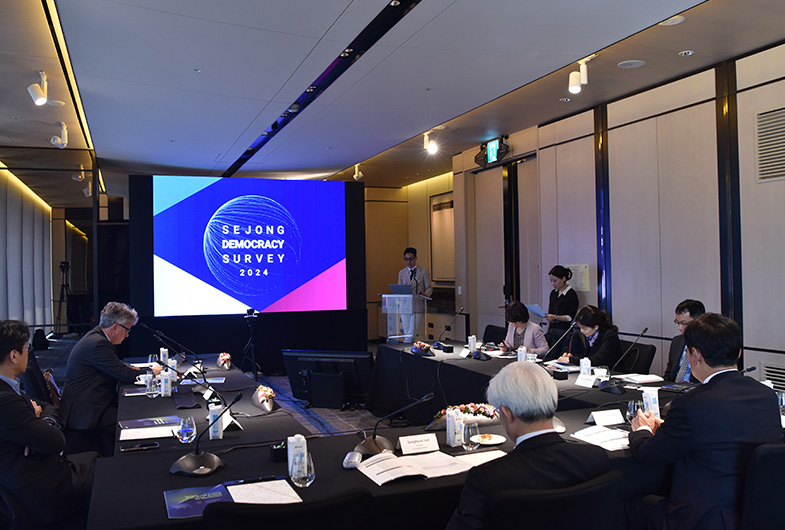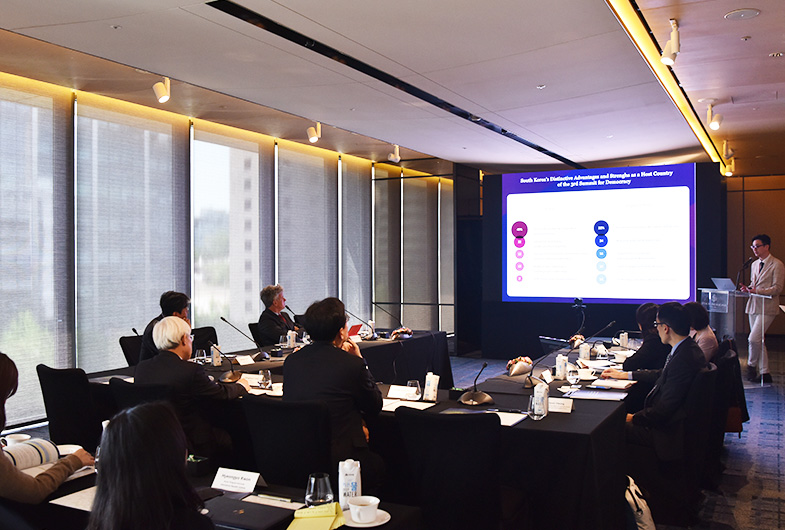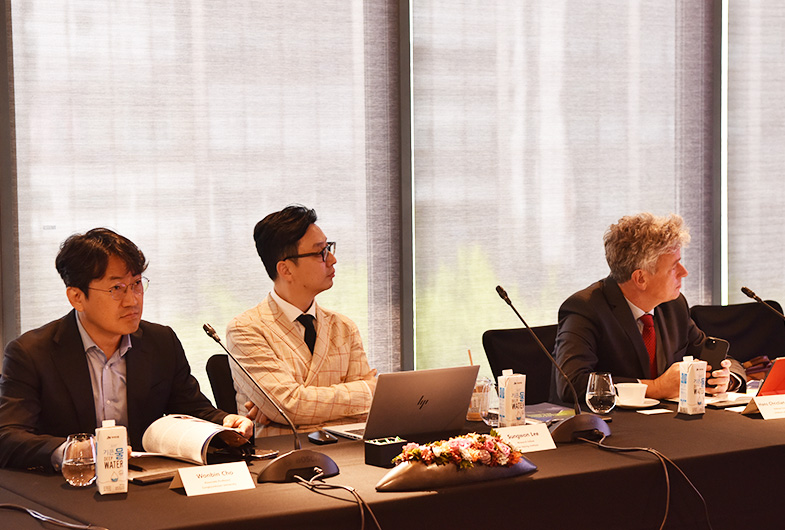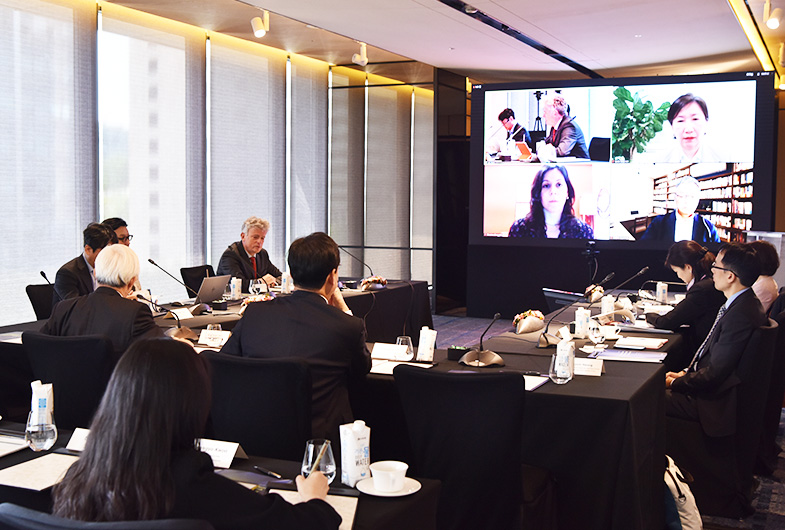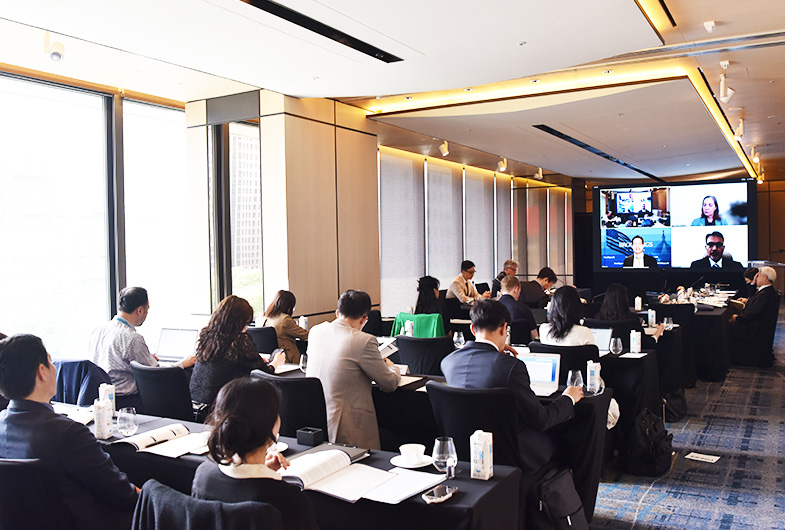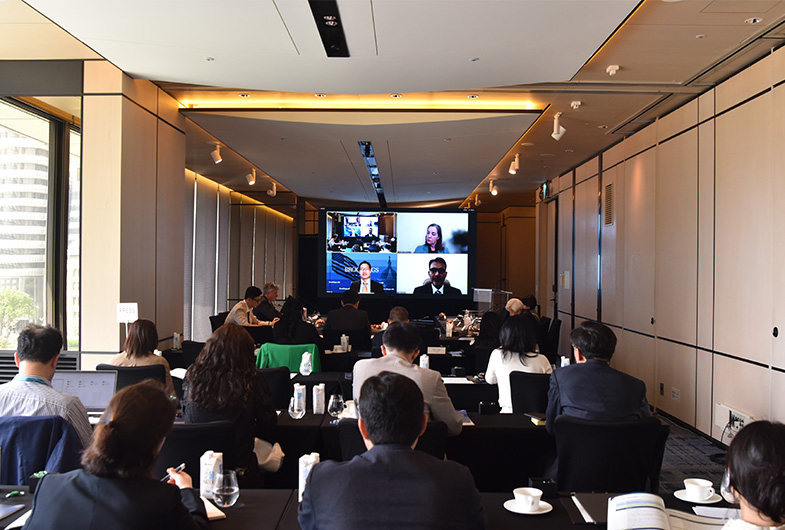The Sejong Institute hosted the "Sejong Institute Democracy Roundtable 2024" on Tuesday, April 23, at the Four Seasons Hotel Seoul under the theme "BEYOND THE SUMMIT: Insights and Actions from the 3rd Summit for Democracy", a hybrid forum with officials from various country's embassy and international experts about democracy.
The forum is not only to review the comprehensive outcomes and policy recommendations of the 3rd Summit for Democracy held from March 18 to 20 under the initiative of the Korean government but also to explore action plans to create the future challenges raised through the summit.
In this context, this roundtable discussed the challenges and opportunities for global democracy posed by the rise of the Asia-Pacific region and the rapid development of AI and digital technologies and examined ways to build cross-border cooperation, stakeholder engagement, and partnerships to respond to these challenges.
The first session of the forum was moderated by Sang Hyun Lee(President of the Sejong Institute) with his opening remarks, and the second session was moderated by Professor Wonbin Cho (Professor at Sungkyunkwan University) and Mason Rich (Professor at Hankuk University of Foreign Studies) for moderating third session.
□ After the opening remarks, Dr. Sungwon Lee(Director of the Center for Security Strategy presented the Sejong Democracy Survey 2024.
In particular, the Sejong Democracy Survey 2024 contains infographics about the results of a survey of 30 global experts conducted during the 3rd Summit for Democracy Summit. The infographic contains global experts' diagnoses of major internal and external threats to democracy, prospects for democracy, the use of AI in democratic governance, and Korea's expected role and capabilities in promoting democracy.
□ In the first session, the major theme was "Evaluating the Outcomes of the 3rd Summit for Democracy and the Significance of Hosting the Summit in Korea." Officials from major embassies in Korea (EU, Germany, Canada, etc.) and the officials from the U.S. State Department were invited to share the outcomes of the 3rd Summit for Democracy from their respective countries' perspectives and discuss the contributions of the Korean government to achieve democracy for future generations.
○ At the same time, Michael Green(Professor at the University of Sydney, Center for American Studies) and Dr. Yoshihede Soeya(Professor Emeritus at Keio University) were invited remotely to discuss how to share Korea's democratic development model with the international community in the context of the global decline of democratic values and increasing geopolitical risks.
□ In the second session, under the theme of "Solidarity Options for the Development and Spread of Democracy in the Indo-Pacific Region," Dr. Kuyoun Chung(Professor at Kangwon National University), and Dr. Marianne Peron-Doise(French Institut de Relations Internationales et Stratégiques), Dr. Sandip Kumar Mishra(Professor at Jawaharlal Nehru University) and Dr. Andrew Yeo(The Brookings) was invited to discuss how the outcomes of the 3rd Summit for Democracy can be expanded to the Indo-Pacific region
○ Hence the session reviewed how multilateral frameworks can be utilized to help ally countries in the Indo-Pacific region transcend short-term national interests to achieve values-based democratic consolidation, especially in the context of increasing geopolitical volatility, and what strategic actions are required in this process.
□ Dr. Antonia Hmaidi(Senior Analyst of the Mercator Institute for China Studies), Dr. Glenn Tiffert(the Hoover Institution), and Dr. Axel Berkofsky(Institute for Security & Development Policy, Stockholm), were invited and discussed under the theme of “Cyber Disinformation and Artificial Intelligence Threats to Democracy and the Challenges of Countermeasures” to identify the challenges and opportunities posed to democracy by AI technologies and cybersecurity threats.
○ In particular, discussion about methods to prevent dysfunctional phenomena such as privacy violations, disinformation, and algorithmic distortions while preserving the core values of democratic governance, such as transparency, accountability, and fairness, in the process of introducing rapidly developing AI technologies into democratic decision-making processes.
News Related to the Event
1 in 3 experts envisions S. Korea promoting democracy principles: poll
